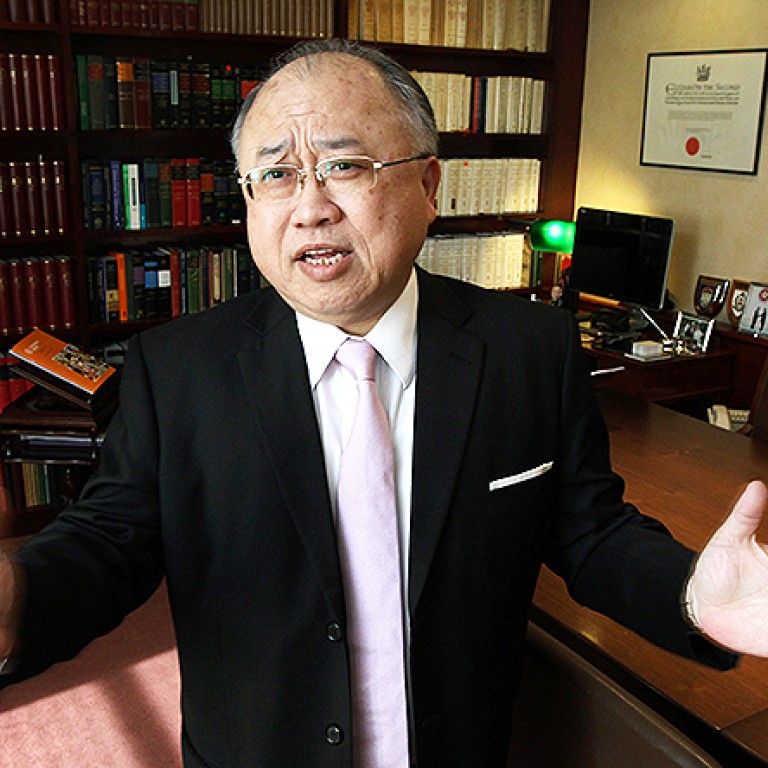
New | Innovation chief should be leading scholar, says Exco’s Andrew Liao
The one to take charge of the planned innovation and technology bureau should be a leading university scholar in the field with good mainland connections, an Executive Council member says.
Andrew Liao Cheung-sing said it would not be preferable to have a bureaucrat into the ministerial position, given the need for professional knowledge required to formulate policies that were “long overdue” compared with neighbouring countries.
Liao is the second in the top advisory body to Chief Executive Leung Chun-ying to push for the creation of the bureau, after Fanny Law Fan Chiu-fun, in the wake of Leung’s announcement re-initiate the setting up of the bureau in the Policy Address earlier this month.
Leung’s previous attempt to launch the innovation and technology, and culture bureaux was put to a halt after lawmakers filibustered his cabinet revamp proposal.
Speaking to a small group of media, Liao said he agreed with Leung that it was time to relaunch the former, but he called it “regretful” that the latter had no chance of a rebirth this time.
“Innovation and technology should join hand in hand with culture in elevating Hong Kong to a new development stage,” said Liao. “It’s regretful the culture bureau could not be done now.”
Both areas are in need of a bureau to coordinate cross-departmental policymaking, he said.
In terms of the innovation and technology bureau, Liao, a long-term intellectual property lawyer and advisor, said such policies had helped countries like United States, Japan and Korea achieve technological advances.
But Hong Kong, he said, had done little in response to an officially-commissioned report a decade ago that called for the industry’s development in Hong Kong.
Liao said he believed a person familiar with and involved in the industry would best suit the leadership role.
Political sensitivity would be another criterion, on top of good connections with industry insiders on the mainland, especially the Pearl River Delta where technological developments had been actively under way.
“He needs to identify what the market needs so as to create a whole new environment,” Liao says. “It is not a job of the civil servant; it’s that of an expert.”
Pro-Beijing local media tipped that Professor Nicholas Yang Wei-hsiung, executive vice-president of Polytechnic University, would take the helm. While Liao said he did not know him, his background seemed relevant.
The setting up of the bureau is also partially backed in the pro-democracy side, with IT lawmaker Charles Mok waving support for it.
But radical legislator Albert Chan Wai-yip has said he might filibuster the plan if Leung sought its approval from the Legislative Council.

